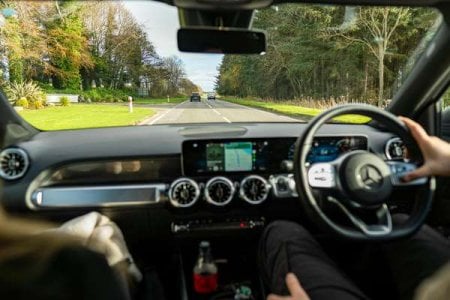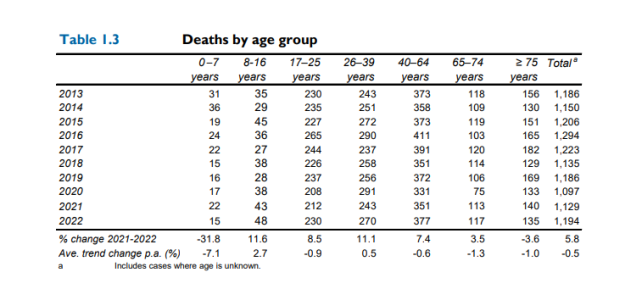Are your driving skills outdated? Experts believe so and here's why
By
Danielle F.
- Replies 46
Navigating the roads safely is a responsibility we all share.
As road rules and regulations change over time, it's crucial to know that driving skills might need a bit of polishing to keep up.
A recent proposal suggested that Australian drivers within a certain age bracket should consider going through driving lessons again.
The University of New South Wales in Sydney released a study that brought to light a contentious idea: mandatory driving lessons for those over 50.
The rationale behind this suggestion was to enhance road safety across Australia.
According to the Bureau of Infrastructure and Transport Research Economics, drivers over 65 represent a significant 21 per cent of road deaths.
In contrast, drivers between ages 17 to 25 account for 19 per cent of road deaths.
UNSW Scientia Professor Kaarin Anstey pointed out that common driving mistakes were not necessarily a product of ageing.
'A lot of these are just bad habits that drivers have brought with them from their younger years,' Professor Anstey said.
'We see a lot of people not checking blind spots, not taking right-hand turns properly, cutting corners, or not maintaining their lane position.'
Professor Anstey suggested that drivers aged 50 years and above should incorporate extra driving lessons into their 'normal life'.
This proactive approach could help drivers reflect on their driving skills and identify areas for improvement.
'It could be something like, when you turn 50, you are invited to have an extra driving lesson just to check in on your driving,' Professor Anstey added.
Anstey has been at the forefront of studies at Neuroscience Research Australia (NeuRA) and has focused on improving older driver safety.
The NeuRA's Better Drive Study involved monitoring three groups of drivers over 65 for 12 months.
Each group received varying levels of support and feedback to improve their driving skills.
While the full results are pending, Anstey cited a pilot study that showed significant improvements in driving safety among participants who received interventions.
In New South Wales, certain traffic offences could lead to an immediate loss of licence.
However, Anstey argued that the 'all or nothing approach' is not the most effective solution.
Tailored interventions that provide constructive feedback and targeted lessons could be a more beneficial alternative to revoking driving privileges.
So, what does this mean for you?
It's an invitation to stay ahead of the curve and consider taking a refresher driving course.
Not only could it help drivers avoid the pitfalls of outdated driving habits, but it could also give drivers the confidence to navigate the roads with ease and safety in mind.

Have you taken a refresher driving course before? Are mandatory driving lessons for seniors beneficial or an unnecessary measure? We would love to hear your thoughts, so share them with us in the comments section below!
As road rules and regulations change over time, it's crucial to know that driving skills might need a bit of polishing to keep up.
A recent proposal suggested that Australian drivers within a certain age bracket should consider going through driving lessons again.
The University of New South Wales in Sydney released a study that brought to light a contentious idea: mandatory driving lessons for those over 50.
The rationale behind this suggestion was to enhance road safety across Australia.
According to the Bureau of Infrastructure and Transport Research Economics, drivers over 65 represent a significant 21 per cent of road deaths.
In contrast, drivers between ages 17 to 25 account for 19 per cent of road deaths.
UNSW Scientia Professor Kaarin Anstey pointed out that common driving mistakes were not necessarily a product of ageing.
'A lot of these are just bad habits that drivers have brought with them from their younger years,' Professor Anstey said.
'We see a lot of people not checking blind spots, not taking right-hand turns properly, cutting corners, or not maintaining their lane position.'
Professor Anstey suggested that drivers aged 50 years and above should incorporate extra driving lessons into their 'normal life'.
This proactive approach could help drivers reflect on their driving skills and identify areas for improvement.
'It could be something like, when you turn 50, you are invited to have an extra driving lesson just to check in on your driving,' Professor Anstey added.
Anstey has been at the forefront of studies at Neuroscience Research Australia (NeuRA) and has focused on improving older driver safety.
The NeuRA's Better Drive Study involved monitoring three groups of drivers over 65 for 12 months.
Each group received varying levels of support and feedback to improve their driving skills.
While the full results are pending, Anstey cited a pilot study that showed significant improvements in driving safety among participants who received interventions.
In New South Wales, certain traffic offences could lead to an immediate loss of licence.
However, Anstey argued that the 'all or nothing approach' is not the most effective solution.
Tailored interventions that provide constructive feedback and targeted lessons could be a more beneficial alternative to revoking driving privileges.
So, what does this mean for you?
It's an invitation to stay ahead of the curve and consider taking a refresher driving course.
Not only could it help drivers avoid the pitfalls of outdated driving habits, but it could also give drivers the confidence to navigate the roads with ease and safety in mind.
Key Takeaways
- A recent study suggested that Australian drivers aged 50 and over should take mandatory driving refresher lessons to improve road safety.
- The University of NSW study indicated these measures could help address common driving errors, which were habits formed in the early years.
- UNSW Scientia Professor Kaarin Anstey proposed periodic driving refreshers as part of 'normal life' starting at age 50.
- Preliminary results from the Better Drive Study suggested that interventions such as refresher courses could significantly improve older drivers' safety and reduce driving errors.









